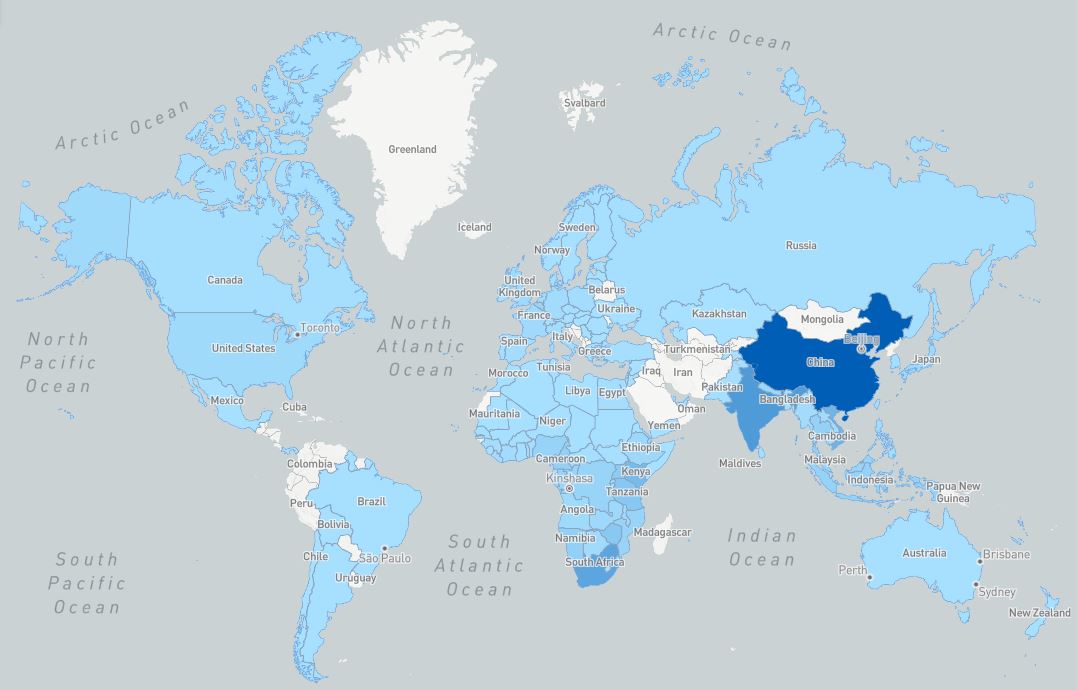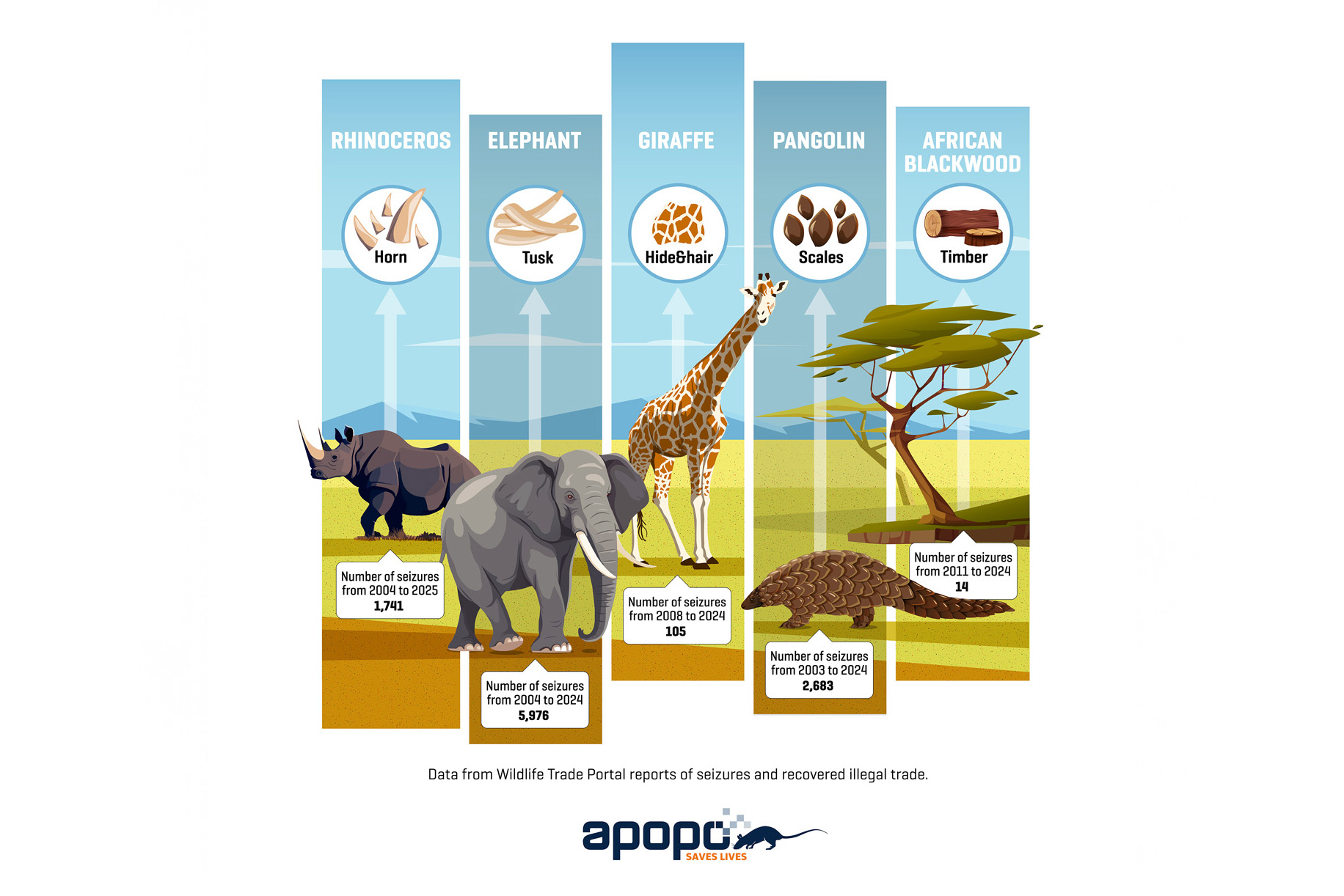APOPO’s Impact
APOPO’s HeroRATs are being tested within international commercial ports in partnership with local authorities to detect trafficked wildlife. Currently, HeroRATs are trained to detect the scent of five different commonly trafficked wildlife products. These include pangolin scales, elephant ivory, rhinoceros horn, giraffe hide and hair, and African blackwood (ebony).
Wildlife Detection Targets
Our scent detection rats are trained to identify the following wildlife products, all of which are subject to international smuggling and pose serious threats to biodiversity:
Elephant Ivory
Seizure Incidents (2004–2025): 5,976
Elephants are heavily targeted for their tusks, which are carved into ornaments and sold illegally despite international trade bans.
Pangolin Scales
Seizure Incidents (2003–2024): 2,683
Pangolins are the most trafficked mammals in the world. Their scales are used in traditional medicine, and their meat is considered a delicacy in some regions.
Rhino Horn
Seizure Incidents (2003–2024): 1,741
Rhinos are poached for their horns, often ground into powder for use in traditional remedies, despite no proven medicinal value.
Giraffe Products
Seizure Incidents (2008–2024): 105
Giraffes are hunted for their skin, hair, and bones. These parts are used in fashion, jewelry, taxidermy, and hunting trophies.
African Blackwood
Seizure Incidents (2011–2024): 14
Harvested from the Mpingo tree, African blackwood also known as ebony, is valued for its density and tone, especially in the production of musical instruments and luxury woodcrafts.
Global Trade Routes
Countries known to be involved in the import and export of elephant ivory, rhinoceros horn, pangolin scales, giraffe products, and African blackwood.

Data and maps sourced from Wildlife Trade Portal, 2025.

